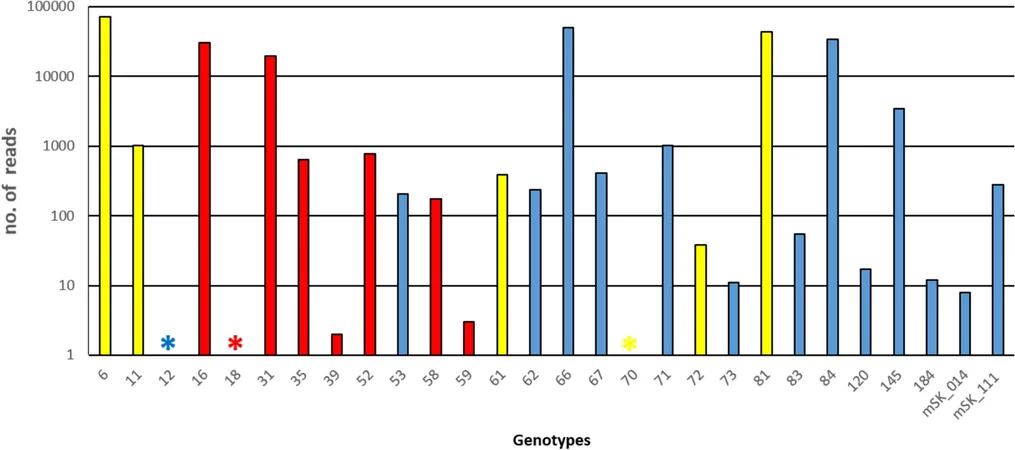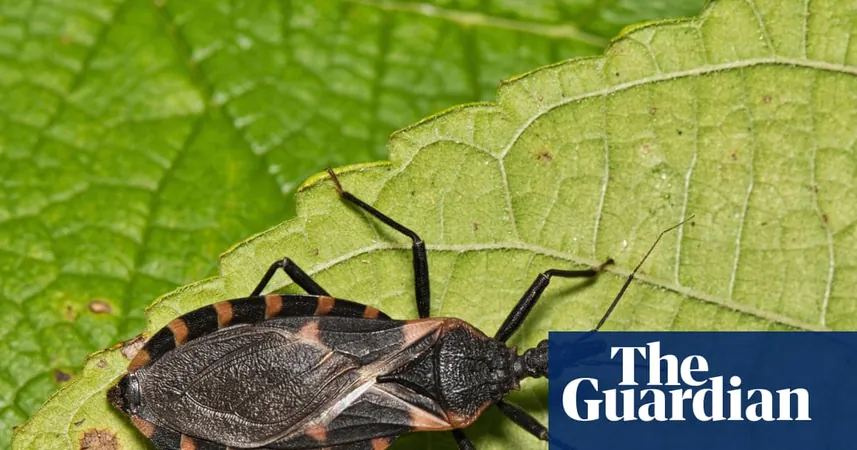
Revolutionary Discovery: Wastewater Could Hold Key to HPV and Cervical Cancer Prevention!
2025-05-22
Author: Daniel
Groundbreaking Research in Uruguay!
In a stunning revelation, scientists in Uruguay have identified human papillomavirus (HPV) genotypes associated with cervical cancer in urban wastewater. This innovative approach could fundamentally change how we monitor and combat serious diseases, especially in low- and middle-income countries where reliable health data is often scarce.
The HPV-Cervical Cancer Link
HPV is responsible for a staggering 99% of cervical cancer cases, disproportionately affecting women in lower-income regions, which face the highest prevalence and mortality rates. Fernando Spilki, a prominent virologist, emphasizes the potential of wastewater monitoring to uncover crucial insights about population health before cases become apparent.
A Game-Changing Epidemiological Tool
The implications of this research are vast. By leveraging domestic wastewater, which contains residues of diseases excreted through bodily fluids, scientists can gain real-time insights into community health. HPV can be traced in wastewater from sources such as skin washing and urinary discharge.
Understanding HPV: The Basics
HPV spreads primarily through sexual contact and can lead to complications that range from genital warts to various cancers, predominantly cervical cancer, which ranks as the fourth most common cancer among women worldwide. Only a handful of the 200 known HPV genotypes are directly linked to cervical cancer, notably genotypes 16 and 18.
The Research Breakdown
The wastewater study conducted in Salto, a city of 114,000, involved monthly samples over nearly a year, revealing the presence of HPV in 75% of samples and identifying 28 different genotypes. Alarmingly, 8 of these were classified as high-risk for cervical cancer. To complement this, clinical Pap smears from local patients showed that 45% tested positive for HPV, reinforcing the wastewater's predictive capabilities.
A Glimpse into HPV Vaccination Efforts
In Uruguay, the HPV vaccine is provided for free to individuals aged 11 to 26; however, it is not mandated. The country has achieved 65% vaccination coverage among girls under 15 and 55% for boys for the first shot. Researchers suggest that as vaccination rates rise, the prevalence of high-risk HPV genotypes will likely decline.
A Legacy of Pandemic Innovation
This novel approach to epidemiology emerged as a legacy of the COVID-19 pandemic, which highlighted the need for diversified monitoring methods. Spilki notes that before the pandemic, wastewater studies primarily focused on fecal-oral viruses, but now there's a push to monitor a wider array of pathogens. This expansive surveillance tool is shaping strategies for vaccine management and disease prevention.
The Future is Now!
As scientists continue to decode the mysteries hidden in our wastewater, this groundbreaking research from Uruguay heralds a new era in disease surveillance. The ability to track HPV through sewage could not only revolutionize our response to cervical cancer but pave the way for proactive health strategies in vulnerable regions across the globe.



 Brasil (PT)
Brasil (PT)
 Canada (EN)
Canada (EN)
 Chile (ES)
Chile (ES)
 Česko (CS)
Česko (CS)
 대한민국 (KO)
대한민국 (KO)
 España (ES)
España (ES)
 France (FR)
France (FR)
 Hong Kong (EN)
Hong Kong (EN)
 Italia (IT)
Italia (IT)
 日本 (JA)
日本 (JA)
 Magyarország (HU)
Magyarország (HU)
 Norge (NO)
Norge (NO)
 Polska (PL)
Polska (PL)
 Schweiz (DE)
Schweiz (DE)
 Singapore (EN)
Singapore (EN)
 Sverige (SV)
Sverige (SV)
 Suomi (FI)
Suomi (FI)
 Türkiye (TR)
Türkiye (TR)
 الإمارات العربية المتحدة (AR)
الإمارات العربية المتحدة (AR)